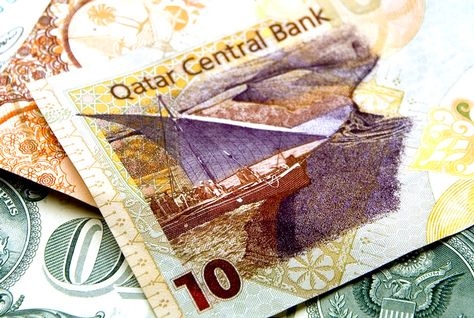The successful launch of the world’s largest-ever, dollar-denominated Islamic bond is a notable milestone in the rise of Qatar’s sharia-compliant finance industry. An ambitious infrastructure investment program and growing per capita wealth are supporting the growth of Islamic financial services, as the authorities look to continue regulatory reform.
Qatar’s $4bn sukuk issue on July 11 was more than six times oversubscribed, drawing an order book of more than $24bn
Qatar’s $4bn sukuk issue on July 11 was more than six times oversubscribed, drawing an order book of more than $24bn. The two-tranche bond was the Qatari government’s first venture into the Islamic debt markets for almost a decade and will be used to supplement public coffers.
Each sukuk was valued at $2bn. The five-year bond sold at a yield of 2.09% and the 10-year at 3.24%, according to international press reports. The low yields are indicative of strong demand for Qatar’s sukuk, due to their perceived stability during a time of international economic uncertainty.
Qatar’s sukuks were 18 basis points lower than if they had been conventional bonds
Across the GCC member states, bond spreads have narrowed in recent months, as investors have taken note of the countries’ solid budgetary positions, bolstered by high oil prices. Sukuks have drawn in cash from Islamic investment funds, particularly those based in the Gulf and South-east Asia, as other opportunities for sharia-compliant financing have become less appealing, given the economic climate. International press reports suggested that the yields on Qatar’s sukuks were 18 basis points lower than if they had been conventional bonds – a fact that may be attributable to the strong interest in Islamic funds.
The country is undertaking around $100bn in infrastructure investments over the next five years
Qatar certainly stands to benefit from its decision to launch a sizeable sukuk at this time. The country is undertaking around $100bn in infrastructure investments over the next five years, both to support continued economic growth and to lay the foundations for the World Cup. While the country’s budget surplus tripled to $12.2bn in the fiscal year ending March 2012, the extra cash provided by the sukuk will help support public investment. The issue was also designed to help cool inflationary pressures by mopping up excess liquidity.
Qatar’s sharia-compliant financial sector has grown strongly in recent years, as it has worldwide
The sukuk is also a vote of confidence in Islamic financial instruments from the government of the world’s richest country, in terms of per-capita GDP. Qatar’s sharia-compliant financial sector has grown strongly in recent years, as it has worldwide. And, as elsewhere, growth brings with it challenges of regulation in an industry that has only reached global prominence relatively recently, and in which definitions of what constitutes sharia compliance sometimes differ.
Islamic banks and sharia-compliant “windows” of conventional institutions accounted for around 30% of all banking assets in 2010, according to the IMF. Since then, the Qatar Central Bank (QCB) has introduced new legislation, implemented at the end of 2011, closing conventional banks’ Islamic windows. The change was designed to prevent the possibility of crossover between non-Islamic and Islamic products, though promoting the growth of fully sharia-compliant institutions may have been another goal.
There is a lot of room for growth in the banking sector as a large number of projects are expected to come online, and project financing offers very good opportunities
The ongoing development of infrastructure and private real estate offer substantial scope for growth. “There is a lot of room for growth in the banking sector as a large number of projects are expected to come online, and project financing offers very good opportunities,” Moataz El Rafie, the CEO of Ahli Bank, told OBG.
With sharia-compliant financing such an important force in Qatar and across the world, the authorities and the private sector are keen to ensure that the regulatory infrastructure keeps pace. The ongoing consolidation of financial regulation in Qatar to a single body has been widely welcomed as bringing greater clarity and preventing contradictory or overlapping rules being drawn up.
The Islamic financial service sector is one of the most dynamic in the world at the moment
The Islamic financial service sector is one of the most dynamic in the world at the moment, with growth levels that are particularly impressive given the cloudy international economic outlook. In Qatar, corporations, individuals and now once again the government are turning to sharia-compliant instruments. The state’s wealth, investment plans and its rising importance on the global stage all bode well for the industry.
Oxford Business Group
10 September






















































